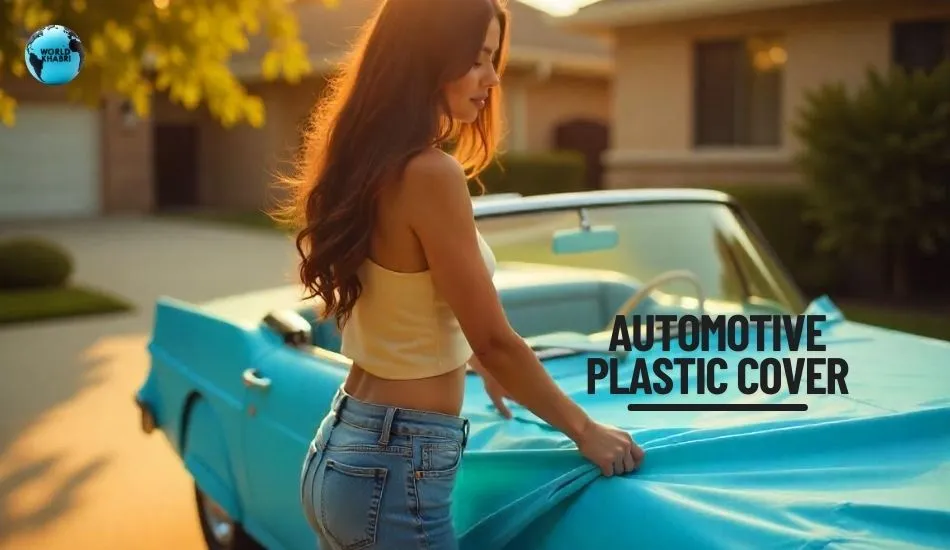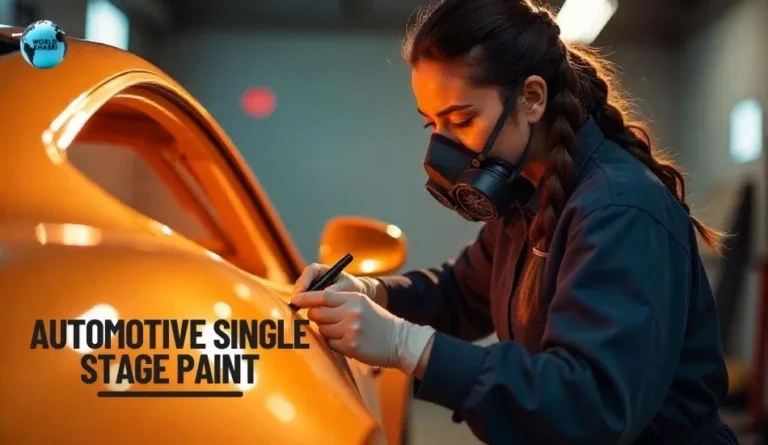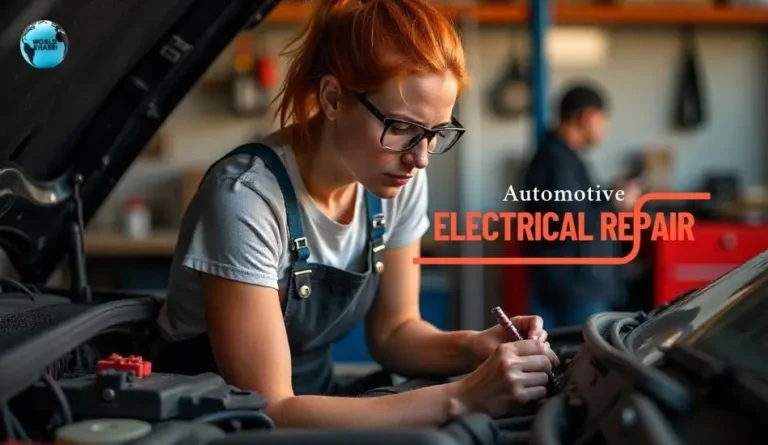
Whenever we talk about a car or any vehicle, we first pay attention to the engine, mileage or design. But have you ever noticed how important the automotive plastic cover used in these vehicles is? Because these plastic covers are used very thoughtfully in car manufacturing in America — they not only enhance the external beauty, but also play a big role in the protection, lightness and long-term durability of the vehicle.
What is An Automotive Plastic Cover?
Combo of Protection and Finish
The job of an automotive plastic cover is not just to cover a part. These covers protect the engine, battery, wiring, wheels or interior parts from dust, water, heat and other external damage. In America, every major vehicle manufacturer (like Ford, GM, Tesla) gets these covers made with special engineering so that they are both light and strong.
What Types of Plastic Are Used?
1. Polypropylene
This is the most used plastic. Its specialty is that it is lightweight, does not get damaged by chemicals and can withstand heat.
Uses:
- Engine cover
- Door trim
- Boot liner
- Fuel system parts
2. ABS (Acrylonitrile Butadiene Styrene)
This plastic is a little stronger and can easily withstand shocks.
Uses:
- Dashboard
- Steering cover
- Inside panel
3. PVC (Polyvinyl Chloride)
This plastic is flexible and does not get damaged by moisture. In America, it is used for interior upholstery and wiring protection.
Uses:
- Seat cover layer
- Wiring holder
- Door seal
4. Polycarbonate
This is a transparent and strong plastic. Headlights and instrument clusters are made from it.
Uses:
- Headlight lens
- Wind deflector
- Display cover
Importance of These Covers in America
Lightweight Covers, Better Mileage
The mileage and emission regulations for vehicles in America are quite strict. In such a situation, the lighter the vehicle, the better the mileage. Automotive plastic covers help in reducing weight, which saves fuel.
Cheap and Effective
Plastic covers are cheaper than metal and can be molded on a large scale. This also reduces the production cost, and the customer also benefits.
Freedom in Design
Plastic can be molded in any shape, so car companies can customize their designs. This makes the look of vehicles premium.
Wonder of Technology: Nano Coatings
Nano coatings are now being used on plastic covers in America. This coating is very useful to protect against moisture, dust and scratches. Companies like Tesla and Rivian are making their parts more durable with these coatings. And this not only increases the life of the parts but also makes the vehicle look new for a long time.
Where Are Automotive Plastic Covers Installed?
- Above the engine (Engine Cover)
- Headlights and taillights
- Wheel hub covers
- Under the floor of the vehicle (Underbody Shield)
- Battery and electronic control units
- Air conditioning unit covers
- Inside the door parts
Effect on Environment and Recycling
Environmental protection rules are very strict in America. Therefore, now such plastic covers are being made which are 100% recyclable. Companies like Ford are doing research on bio-based plastic, which is made from natural sources like corn and soy.
What To Keep in Mind While Buying Automotive Plastic Covers?
1. OEM or Aftermarket?
If you are buying a replacement, then see whether the cover is from the Original Equipment Manufacturer (OEM) or from the aftermarket. OEM covers are more reliable.
2. Heat and Impact Resistance
The covers should be able to withstand high temperatures and shock, especially those in the engine or wheel areas.
3. Fitting and Locking
A good fitting and strong locking mechanism is a must so that the cover does not move or open while driving.
Top 5 Automotive Plastic Cover Suppliers in the USA
1. Magna International
- Headquarters: Aurora, Ontario, Canada
- U.S. Operations: Multiple facilities across the United States
- Website: https://www.magna.com
- Contact: Information available through their website’s contact page
Overview: Magna International is a global automotive supplier with extensive capabilities in design, engineering, and manufacturing of plastic auto parts. They are known for producing a wide range of components, including exterior and interior plastic parts, and have a significant presence in the U.S. automotive industry.
2. Flex-N-Gate Corporation
- Headquarters: Urbana, Illinois, USA
- Website: https://www.flex-n-gate.com
- Contact: Available through their website’s contact section
Overview: Flex-N-Gate is a prominent manufacturer of plastic bumpers, fascias, and other exterior components for the automotive industry. They focus on advanced technologies and sustainable solutions, establishing themselves as a reliable supplier of high-quality auto parts.
3. Sonoco Products Company
- Headquarters: Hartsville, South Carolina, USA
- Website: https://www.sonoco.com
- Contact: Information available on their website
Overview: Sonoco specializes in developing innovative injection-molded plastic parts and components for automotive OEMs. Their services include design and engineering assistance, custom mold making, rapid prototyping, and comprehensive project life cycle management.
4. Koller Craft, LLC
- Location: Fenton, Missouri, USA
- Website: https://www.koller-craft.com
- Contact: Details available on their website
- Overview: Koller Craft specializes in injection-molded plastic automotive components, serving as a Tier 2 or Tier 3 supplier. They offer services like rapid prototyping, on-demand production, and custom plastic solutions for automotive manufacturers.
5. Chase Plastics
- Headquarters: Clarkston, Michigan, USA
- Website: https://chaseplastics.com
- Contact: Jason Merkle, Automotive Business Development Manager
- Mobile: 248-494-6117
- Technical Help Desk: 844-411-2427
- Orders: 800-232-4273
- Email: jmerkle@chaseplastics.com
- Mobile: 248-494-6117
Overview: Chase Plastics is a distributor of automotive thermoplastics and resins, offering a wide range of materials suitable for various automotive applications.
Conclusion
Automotive plastic covers are no longer just an accessory, but have become an essential part of vehicles. They keep the vehicle safe, make it lighter, and give it a premium look. Their use in the US auto industry is growing rapidly and new innovations are being made in their technology every day.


